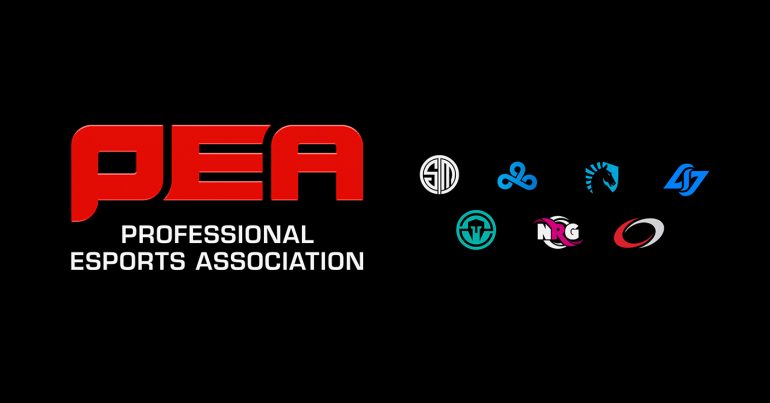This has been the heated debate of the web over the past weeks. Several American clubs’ owners are calling to introduce a system of a franchised league based on the American sports contests model. In the meantime, the major teams are claiming a share of the profits made during the course of the major tournaments. With this in mind, the Professional Esports Association (PEA) was born on Thursday, September the 8th.
Seven of the major American clubs are partnering: Team Solomid (TSM), Cloud9, Team Liquid, Counter Logic Gaming (CLG), Immortals, NRG Esports and CompLexity Gaming. In its press release, the PEA announces its ambition: “To become the NBA of electronic sports”. For this, the association presents its action plan: “To build an organization dedicated to professional esport and focusing on generating unprecedented revenues for the professional players”. To achieve this goal, the PEA wishes to organise a big professional Counter Strike championship with $500.000 of endowment fund for the first season. The players and the clubs’ owners will share 50% of the benefits made by the League.
In the current organisation of the market, the teams need more stability to be able to benefit from a diversification of their revenues. It’s very unstable to build a lasting project when most of the revenues come from sponsoring. To move ahead, it seems logical to initiate such a pool.

Sommaire
SmartCast’s eye: The bogus good idea?
First, YES – the clubs should be able to get a share of the benefits from a tournament. The teams do contribute to the contest success. They strengthen the audience through their fan base and contribute to the show. Nonetheless, isn’t the PEA acting hastily?
The overload of an area
Establishing such a new contest is always a huge challenge and this answer seems to be unsuitable to us. Why? This sounds as a front-end response! We already showed in ours records that Counter Strike is the field with the biggest amount of contests. By entering the competition, the PEA tends to contribute to an additional vagueness. On the contrary, the brands would like more transparency in our contest system. The addition of a new tournament will result in the opposite. We will have to innovate to be able to stand against well-established stakeholders and the major steps of this route: ELeague, ESL Pro league, ESL One, IEM, Esport Championship Series, StarLadder, DreamHack, PGL… What will be the ingredient which will allow this championship to be different? What will be the member clubs’ policy as regards others leagues?
A feat at high risk
We definitively respect the work of people involved in the PEA. They are owners who have a strong knowledge of their business and who have succeeded in building powerful clubs. But one doesn’t become a contest organizer overnight. Today, organizers have a long experience. More than arbitrators, they provide a real show, tell stories and make matches epic through a huge production allowing to seduce a demanding audience. How to acquire this knowledge? Will the association be able to partner with an organizer who will have to waive 50% of the benefits? The negotiation might be hard, overall when thinking about the numerous attempts made in the past. It’s still difficult to assess the effects of the World Esport Association (WESA). The Brazilian ABCDE is still looking after results. Launched last year, the Union Esport Team was a flop. What were the G7 results several years ago?
Need of synergy
By now, the championship was announced without any partner support. Thus, how can we be sure of the profit of such a project? If the market is growing, the increase of stakeholders can play tricks to some of them. What allows the success of an ecosystem is the complementarity of its stakeholders. Ultimately, is organising a franchised championship the only way to defend the owners and players interests? Does esport have to follow a well-established model or does it have to find its own model?


